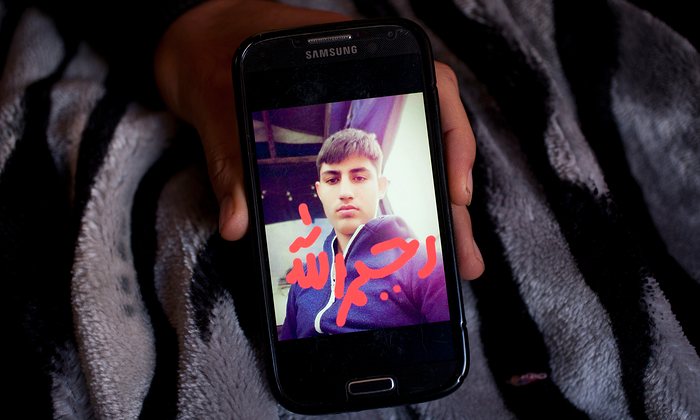The death of Raheemullah Oryakhel, a 14-year-boy from Afghanistan, was marked last month with just a couple of paragraphs in the French press, under the headline “One migrant dead on the port ring road”. There was nothing much to excite further interest; the boy was the 12th refugee to die inCalais this year. The news item added that Raheemullah’s body had been found on the N216, on a stretch of motorway where a number of migrants had previously been run over. Police said he had probably been hit by a car. Whoever was behind the wheel had not bothered to stop.
Nor are the details of Raheemullah’s death particularly shocking to the handful of relatives and acquaintances he left behind in the Calais camp, a fetid, cramped cluster of sagging donated tents and roughly built wooden shacks, now home to an estimated 9,000 asylum seekers. The idea that vulnerable children, some as young as eight, who have mostly fled conflict zones, should spend night after night trying to leap on to moving vehicles, in a desperate (and mostly futile) attempt to reach the UK, surprises no one. It’s a risky business. Sometimes people get suffocated in the trucks, or frozen in refrigerated containers; sometimes they choose a different route and drown trying to swim to England or get electrocuted on the railway. And sometimes they just get run over.

